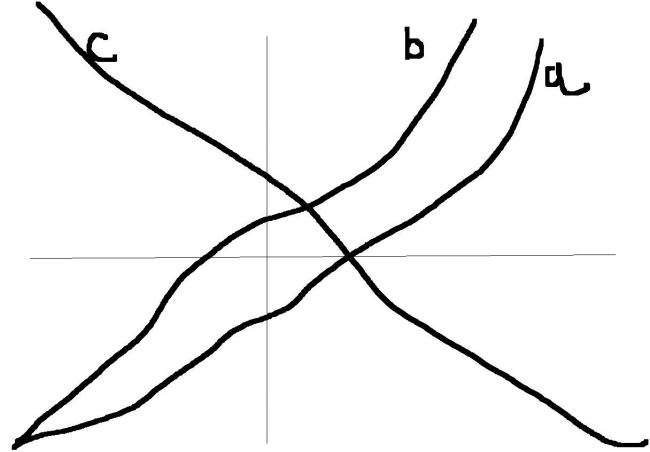1) Show that the least natural number a for which x + ax -2 > 2
for all x belonging to (0,∞) is 2.
2) Let f(x) = sinx+ax+b, then show that f(x)=0 has
(a)only one real root which is positive if a>1, b<0
(b)only one real root which is negative if a>1, b>0
(c)only one real root which is negative if a<-1, b>0.
-
UP 0 DOWN 0 1 6

6 Answers
1) --> x^3-2x^2+a>0 .....
differential of the fxn = 3x^2 - 4x = x(3x-4) .....
+ - --> +
____________________________________________________________
0 4/3
minima at 4/3 .....
64/27 - 32/9 = 64 - 96/27 = -32/27
so we have to lift up the fxn by 32/27 or 32/27 =a
sry abt calc errors ..

2)
diff of fxm
f/(x)=cosx + a ..
if a>1 f/(x)>0 for all x εR
lt x-->-inf f(x) = -inf and lt x-->inf f(x) = inf
so it has to cut x axis at exactly 1 pt
i)but f(0) = b which is <0 there fore it will cut axis at exactly 1 pt ...after the origin ie positive root ...
ii)b>0 clearly root negative
iii) if a <1 .. f/(x)<0
and now b>0 --> clearly root positive
osama check if u typed qsns. correctly[2c and 1] or check if i made any calc. error ......